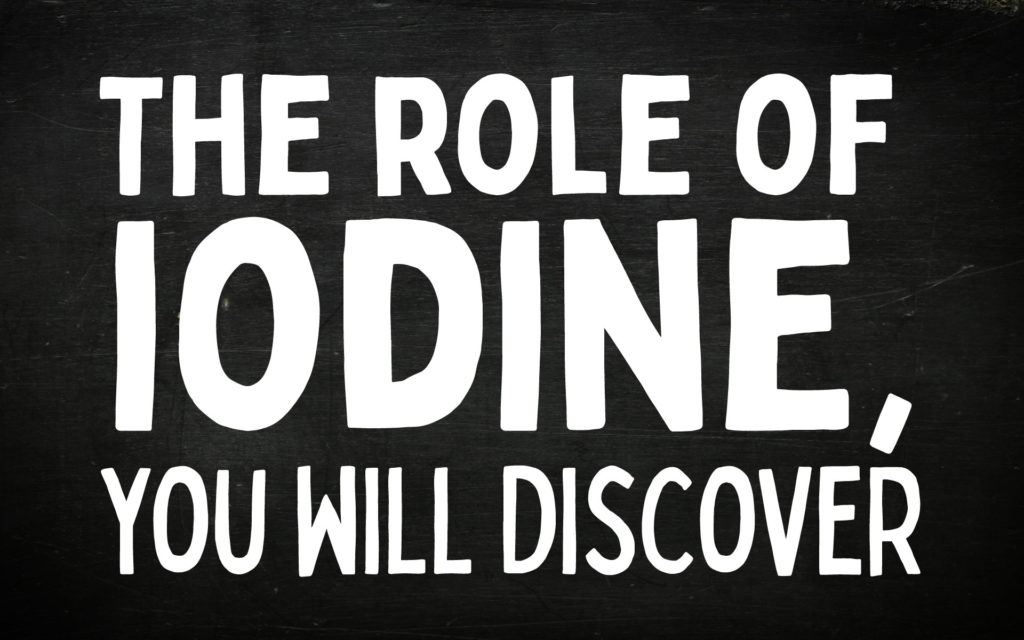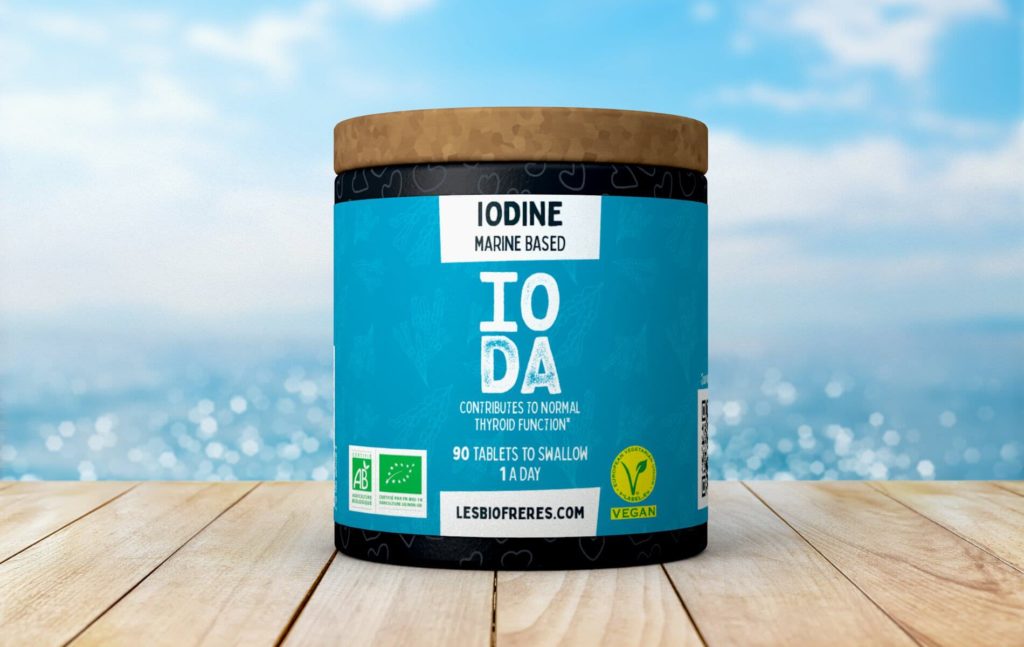The role of iodine, you will discover
Reading time: 3 minutes | Written with love by: Alexis
Iodine is a trace element, that is to say a mineral salt that cannot be produced by our body... Alexis tells you all about it in detail!

THE ROLE OF IODINE
Iodine is a trace element, that means it is a mineral salt that cannot be produced by our body.
Although iodine is present in our bodies in very small quantities, it contributes to and is essential for a wide range of functions in the body.
In the body, iodine contributes to the normal production of thyroid hormones and normal thyroid function.
The two thyroid hormones, Thyroxine (T4) and Triiodothyronine (T3) are very important because they regulate the basal metabolism of our cells.
Yes, but what is Basal Metabolism ?
Let’s say that these hormones help in the production of energy and heat or in using elements from the food we eat such as sugars, fats and proteins. They act on the muscles, the heart, the digestive tract, hair, etc. (pleiotropic effect).
In children, they also participate in the growth and development of the body through their action on the nervous system and the skeleton and, even if our friend Yoda once said,
“SIZE MATTERS NOT. LOOK AT ME. JUDGE ME BY MY SIZE, DO YOU ? HMM. AND WELL YOU SHOULD NOT”
It’s best not to neglect iodine.
In adulthood, these two hormones contribute to the normal functioning of the nervous system.
IODINE DEFICIENCY
Iodine deficiency develops when iodide intake is < 20mg/day. Iodine deficiency is rare in regions where iodized salt is used but is common worldwide. It can also occur with a strict vegetarian diet.
Iodine deficiency affects the body as Iodine contributes to :
- normal functioning of the nervous system,
- the maintenance of normal skin,
- the normal production of thyroid hormones and normal thyroid function.
We don’t joke with our Iodine supplement ‘Ioda’ from the Bio Frères ! And as our green friend once said:
“WHEN 900 YEARS OLD LIKE ME YOU WILL REACH, LESS FIT YOU WILL BE, AND IN IODA YOU WILL TRUST”
(Yes, we admit, the end of the quote is ours.)
IODINE SOURCES AND ABSORPTION
The iodine content of foods is very variable.
The richest sources are marine products (fish, shellfish, algae), followed by eggs and milk. Iodine is absorbed in the stomach and small intestine where it is transported by the Sodium/Iodide symporter* and pendrin (another membrane transporter) to the cells of the thyroid gland, the thyrocytes.
* A symporter is a transporter protein that allows two different molecules to pass through the cell membrane at the same time.
DIETARY RECOMMANDATIONS FOR IODINE
Some governments recommend the consumption of iodine-enriched salt (iodized salt) to prevent deficiency, especially in the vegan population, or pregnant and breastfeeding women. Iodised salt is not widely available in the UK and it is not recommended by the government as a way to increase iodine intake. A plant origin form of iodine is therefore preferable.
The European Food Safety Authority (EFSA) recommends 150μg/day for adults and 130μg/day for teenagers from 15 to 17 years .
IODA FROM THE BIO FRERES

Our Ioda comes from the seaweed Fucus vesiculosus and Fucus serratus, commonly known as Bladder wrack and Toothed wrack.
They belong to the brown algae family and can grow up to one metre long. These algae colonise the rocks on the foreshore in both sheltered and rough areas.
The seaweed is harvested throughout the year in the northern part of Brittany, that’s right, it’s not from the USA as we might think. Our Ioda is lovingly made in France ! What’s more, the algae comes from an outstanding protected site designated Natura 2000, in order to protect it from pollution.
Initially known for their high iodine and alginate content, these algae are now also popular for their bioactive compounds: fucoidans, phlorotannins and fucoxanthin.
Each tablet contains about 120 μg of Iodine, i.e. about 80% of the recommended dietary allowance for adults. We recommend taking one tablet per day.
SEE ALSO
https://www.vegetarisme.fr/liode-dans-alimentation-vegetale/
https://www.vegetarisme.fr/wp-content/uploads/2012/07/Fiche_Iode.pdf

Written with love by: Alexis
Alexis is a researcher. True guardian of the temple, he ensures the effectiveness of formulas, compliance and product certifications. He also manages our scientific monitoring and the in-depth articles on our blog.